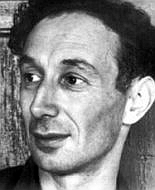Quelle: Language, Truth, and Logic (1936), p. 16.
Kontext: The criterion which we use to test the genuineness of apparent statements of fact is the criterion of verifiability. We say that a sentence is factually significant to any given person, if, and only if, he knows how to verify the proposition which it purports to express — that is, if he knows what observations would lead him, under certain conditions, to accept the proposition as being true, or reject it as being false.
Alfred Jules Ayer: Zitate auf Englisch
Quelle: Language, Truth, and Logic (1936), p. 77.
Kontext: The principles of logic and mathematics are true simply because we never allow them to be anything else. And the reason for this is that we cannot abandon them without contradicting ourselves, without sinning against the rules which govern the use of language, and so making our utterances self-stultifying. In other words, the truths of logic and mathematics are analytic propositions or tautologies.
Quelle: Language, Truth, and Logic (1936), p. 49.
Kontext: The problem of induction is, roughly speaking, the problem of finding a way to prove that certain empirical generalizations which are derived from past experience will hold good also in the future. There are only two ways of approaching this problem on the assumption that it is a genuine problem, and it is easy to see that neither of them can lead to its solution.
The Foundations of Empirical Knowledge (1940). <!-- also quoted in Sense and Sensibilia (1962), edited by J. L. Austin, p. 85 Oxford University Press -->
Kontext: I am using the word "perceive". I am using it here in such a way that to say of an object that it is perceived does not entail saying that it exists in any sense at all. And this is a perfectly correct and familiar usage of the word. If there is thought to be a difficulty here, it is perhaps because there is also a correct and familiar usage of the word "perceive", in which to say of an object that it is perceived does carry the implication that it exists.
Quelle: Language, Truth, and Logic (1936), Ch. 1, first lines.
Kontext: The traditional disputes of philosophers are, for the most part, as unwarranted as they are unfruitful. The surest way to end them is to establish beyond question what should be the purpose and method of a philosophical enquiry. And this is by no means so difficult a task as the history of philosophy would lead one to suppose. For if there are any questions which science leaves it to philosophy to answer, a straightforward process of elimination must lead to their discovery.
Emphasizing his views on philosophy as something abstract and separate from normal life to Isaiah Berlin, in the early 1930s, as quoted in A.J. Ayer: A Life (1999) by Ben Rogers, p. 2.
“I saw a Divine Being. I'm afraid I'm going to have to revise all my various books and opinions.”
A statement he made soon after recovering from his near-death experience, as reported by Dr. Jeremy George, in "Did atheist philosopher see God when he 'died'?" by William Cash, in National Post (3 March 2001) http://gonsalves.org/favorite/atheist.htm.
"The Meaning of Life".
The Meaning of Life and Other Essays (1990)
Quelle: Language, Truth, and Logic (1936), p. 107.
On his greater appreciation of the scenery of the world, after his near-death experience, as quoted in "Did atheist philosopher see God when he 'died'?" by William Cash, in National Post (3 March 2001).
Philosophy in the Twentieth Century (1982) p. 133.
As quoted in The Observer (17 August 1986).
"The Concept of Freedom".
The Meaning of Life and Other Essays (1990)
As quoted in Profile of Sir Alfred Ayer (June 1971) by Euro-Television, quoted in A.J. Ayer: A Life (1999), p. 2.
"The Meaning of Life".
The Meaning of Life and Other Essays (1990)
